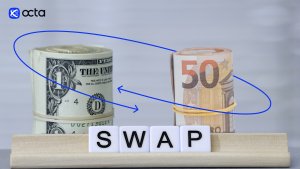France targets finfluencers with Responsible Certificate
France is adopting a proactive stance toward regulating financial influencers with the introduction of a non-mandatory “Responsible Influence Certificate.”

This initiative, led by two French regulatory bodies, the Autorité des Marchés Financiers (AMF) and the Autorité de Régulation Professionnelle de la Publicité (ARPP), seeks to enhance credibility and ethical conduct among individuals promoting various investment products, including cryptocurrencies.
Launched in 2021, the “Responsible Influence Certificate” has already been obtained by more than 1,000 influencers in France. This certificate program is now expanding to include a dedicated course for financial influencers, encompassing various investment products such as equities, bonds, ETFs, derivatives, as well as unconventional investments like wine and cryptocurrencies.
To attain this specialized certificate, candidates are required to achieve a minimum score of 75% on a 25-question multiple-choice exam. While this certification is not legally mandatory, the ARPP retains the authority to revoke it for non-compliance. As a prerequisite for the specialized certificate, influencers must first obtain a general certificate offered by the ARPP, which is available to influencers across various sectors.
This development aligns with recent legislative changes in France pertaining to the use of influencers in cryptocurrency promotion. In May 2023, the French Senate passed an amendment permitting registered cryptocurrency firms to engage social media influencers for advertising purposes.
In March, France’s National Assembly’s Economics Committee voted in favor of a law that bans social media influencers from touting risky financial services, including cryptocurrencies.
The ban is part of Bill 790, which is an attempt by the French government to address the promotion of financial scams or unlicensed activity in the country by influencers on social media. The proposed law, which is yet to be approved by the Assembly and Senate, was proposed by Stéphane Vojetta of President Emmanuel Macron’s ruling Renaissance party and opposition socialist Arthur Delaporte.
The legislation also puts cryptocurrency in the same category as risky financial products, gambling, aesthetic surgery, and pharmaceuticals. According to the bill, violators of the new law will face up to two years in jail as well as a fine of €30,000. Those who found guilty will also lose access to their social media accounts.
The move is directly aimed at putting a stop to the worrying trend of high-risk investments and sometimes fraudulent schemes being touted to often inexperienced consumers. It came a few weeks after a class action lawsuit was launched in France by 102 victims against a couple of French social media influencers for deliberately leading them to lose money on crypto trading.
Binance France and its global parent were also sued by fifteen investors who claim the cryptocurrency giant flouted local regulations with misleading commercial practices. The plaintiffs shared screenshots showing Binance’s marketing materials in French prior to registering its business with local regulators, including a Telegram channel dubbed “Binance French.”









